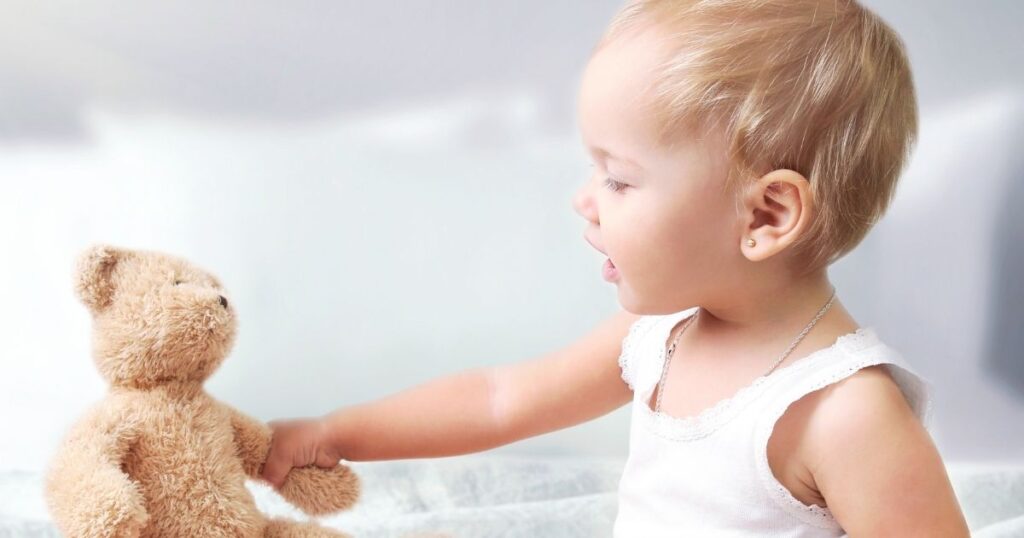Nothing is more exciting than when your baby begins to take verbal milestones! After those initial stepping stones are taken, your child will continue to grow and begin speaking more.
Though every child is different, even sometimes within the same family, each child moves considerably at their own pace in their development. Some children will be doing extremely well in one area and struggle in another – but that’s okay.
To understand where your child is at in their development, it’s recommended to follow some sort of guideline for their verbal milestones in their learning. We’ve also provided points on how you, as parents, can help with your child’s development along the way, because after all, you play the biggest role in their learning.
By 0-6 months your child might be:
- Making cooing sounds
- Able to recognize your voice
- Making noise when talked to
- Crying differently for different needs
- Making different sounds. For example, smiling, laughing, or making different noises
- Starting to babble
- Attempting to communicate with gestures
How you can help at this age:
- Make faces and noises
- Speak with inflections
- Talk about your activities from the day they are born
- Read and look at books
By 7-12 months your child might be:
- Babbling in syllables
- Imitating tones and speech sounds
- Moving his or her eyes in the direction of a sound
- Responding to tones
- Saying “mama” or “dada” with no meaning
- Recognizing words
How you can help at this age:
- Play interactive games (peek-a-boo, nursery rhymes)
- Reading books to them, even if they don’t understand
- Celebrating the small successes like being able to hold an object on their own
By 12-17 months your child might be:
- Nonverbally answering questions
- Trying to imitate simple words
- Beginning to speak first basic words
- Obtaining a vocabulary of four to six words
By 18-24 months your child might be:
- Recognizing names of familiar people or objects
- Following simple directions
- Asking for common foods by name
By 2-3 years your child might be:
- Using descriptive words like “big” or “happy”
- Answering simple questions
- Using pronouns (I, me, he, she, you)
- Having their sentences extend to 4-5 words
- Understood mostly by strangers
How you can help at this age:
- Talking slowly while speaking with your child
- Letting your child lead the conversation
- Avoiding testing them
By 3-4 years your child might be:
- Grouping objects, like food, objects, and colors together
- Expressing ideas or feelings
- Repeating sentences
- Having fun with language
- Having longer conversations
By 4-5 years your child might be:
- Understanding spatial concepts such as, on top of, inside of, behind, next to, etc.
- Understanding their speech, but struggling to pronounce complex words
- Able to describe how to do a task
- Able to answer “Why” questions
By 5 years your child might be:
- Understanding chronological order
- Performing basic rhyming
- Engaging in conversation
- Using their imagination to create stories
- Able to describe objects
How you can help:
- Allowing your child to explore their imagination with play
- Playing with your child to guide them through certain learning tasks
Remember, not one child is the same, and they will learn and develop at all different paces.
In our daycare center, we are monitoring your child’s development and are happy to discuss your child’s needs to keep them best aligned with these guidelines. However, if you have any serious reservations about your child’s development, talk to your health care provider about your concerns.



